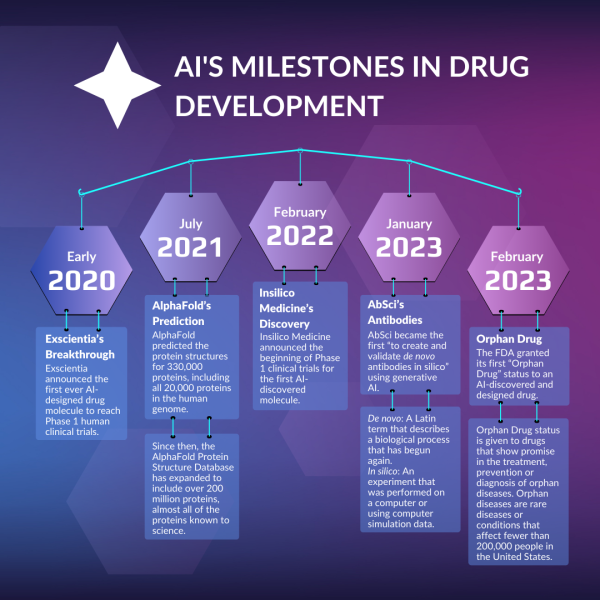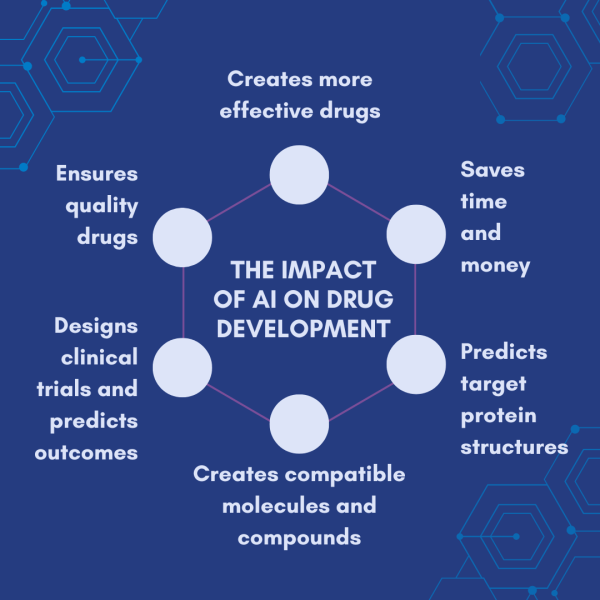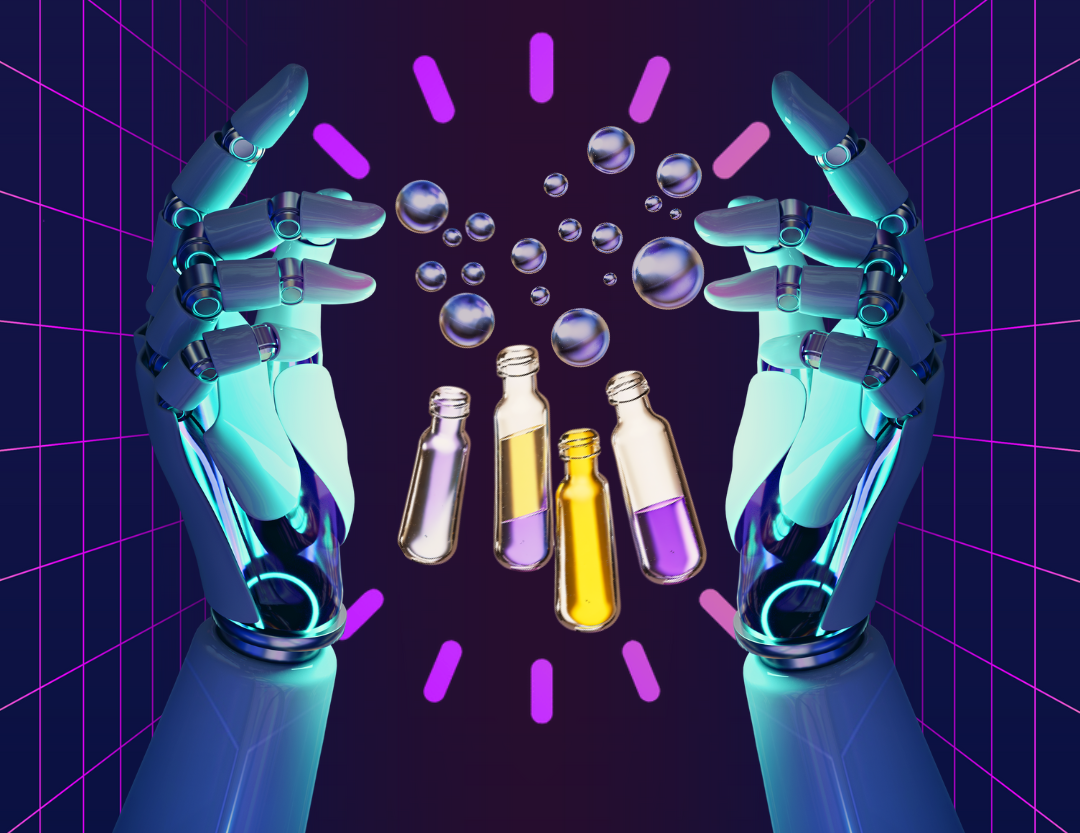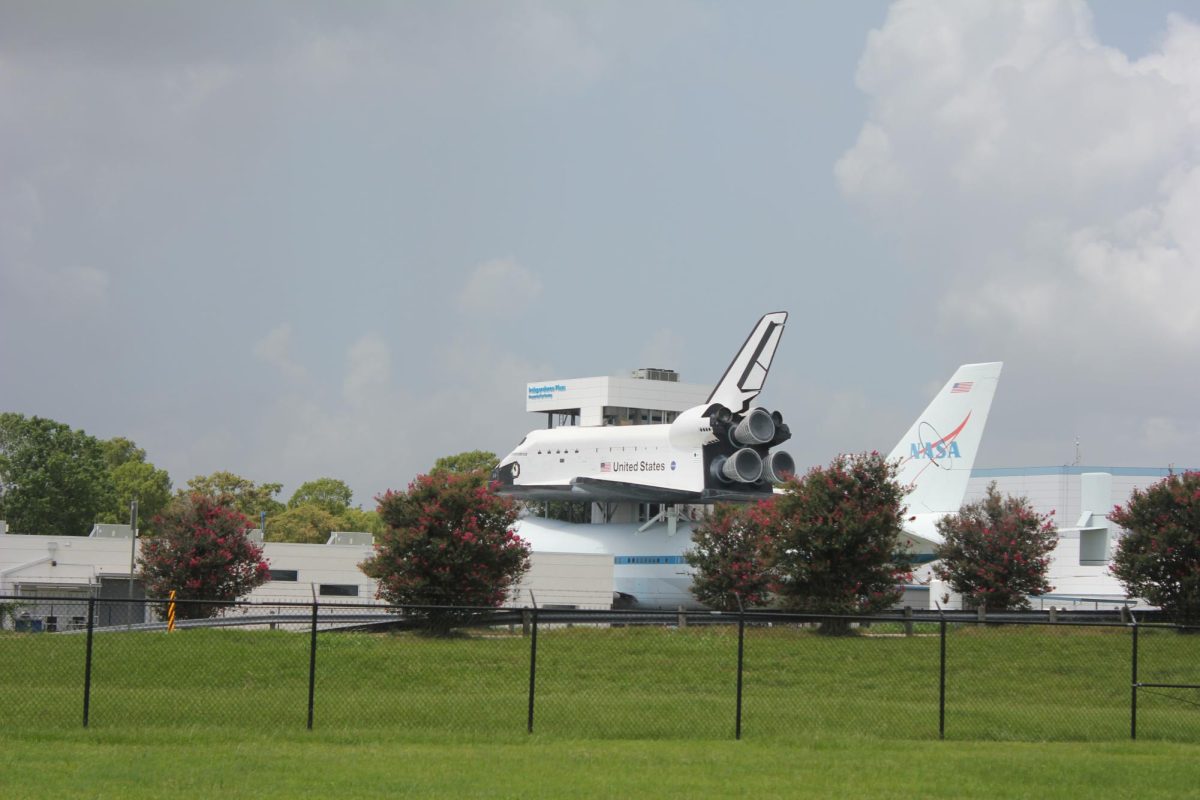In a rapidly evolving world, artificial intelligence is emerging as a revolutionizing force, transforming the way drugs are discovered and developed.
Generative AI tools are developed with the notion of creating what researchers need instead of finding it. Dr. Alex Zhavoronkov, the CEO and founder of Insilico Medicine, said at AFAR’s AI for Longevity Drug Discovery webinar on June 18, “Once you zoom in on your target of interest, instead of looking for a needle in a haystack, you can generate a perfect needle.”
According to the MIT Technology Review, AI has greatly shortened a process that would normally take more than 10 years. The world’s first AI-generated drug, INS018_055, took only 1.5 years to go through the development process.
INS018_055 was created by Insilico Medicine, a generative AI-driven drug discovery company based in Boston. Generative artificial intelligence programs were introduced in drug development around 2014 and are known in the field as Generative Adversarial Networks. The second wave of generative AIs came in 2017 in the form of transformer AIs. Transformer AIs are generative AIs like ChatGPT and can accomplish tasks such as text summarization and question answering. In drug discovery, researchers use them to input molecular structures and generate novel molecules.

The integration of AI into drug discovery and development has the potential to save many lives (as a result of the reduced drug development time). However, to mold the generative AI into a useful tool, scientists must train it on large data sets of information, a process that can consume months and millions of dollars.
Scientists such as Dr. Fei Yuan, an instructor and bioinformatics programmer at Baylor College of Medicine, have been going through this training process since the 1990s. The resulting AI can sift through vast amounts of biological data to identify drug targets and predict their potential to bind to a drug.
The biggest problem with this process, Yuan says, is bias.
“Recognizing bias and how to eliminate the bias or even reduce effective bias to train the model will be the biggest challenge,” Yuan said.
If the information in the data sets is biased, said Dr. Yuan in a recent Zoom interview, then the AI models won’t produce accurate information, impacting the entire drug discovery process. However, researchers can combat bias by diversifying data sets and randomizing the participants of a survey.
At its core, drug discovery has two major steps: identifying a target (a disease-specific protein targeted by drugs) and searching for a compound (something that can interact with the target to treat or manage the disease). According to Vox, the biggest impact of AI is seen in target identification. Target identification is the process of finding the direct molecular target with an activity that a drug could regulate. AI can even take this process a step further by predicting the 3D structures of these targets, which, in turn, can accelerate the design of drugs that can bind to them.
According to Zhavoronkov, his company utilizes three AI-driven platforms in its drug development process: PandaOmics for target discovery, Chemistry 42 for molecule design, and inClinico for clinical trial prediction. All of these tools speed up the drug development process.

Despite all its success, AI has encountered its share of challenges during the journey in therapeutic development. In 2020, Exscientia, a biotech company, created the first AI-designed drug molecule to enter clinical trials. The drug, DSP-1181, failed during Phase 1 and was eventually discontinued. INS018_055 (created by Insilico Medicine in 2021) reached Phase 1 clinical trials in 2022 and was the first AI-crafted drug to be granted “Orphan Drug” status by the Federal Drug Administration (FDA).
The AI-designed drug started worldwide Phase 2 clinical trials in June 2023. According to Zhavoronkov, INS018_055 targets Idiopathic Pulmonary Fibrosis, a disease that causes permanent scarring in the lungs. It has no known cause and has a life expectancy of two to four years after diagnosis. There is no official release date for INS018_055, as the future of the drug depends on the outcomes of the clinical trials it is currently enrolled in.
The impact of AI in the pharmaceutical industry is growing to influence every aspect of the drug development process, from patient recruitment to drug discovery. However, humans will still be involved in the drug discovery and development process for a long time.
“In the drug discovery process, humans still play roles that are bigger than AI,” Yuan said.
–July 21, 2024-







Ishani Kaushik • Jul 22, 2024 at 8:25 pm
Great job Dhara! Loved how you explained the changing world due to AI, it’s definitely a big shift for sure!